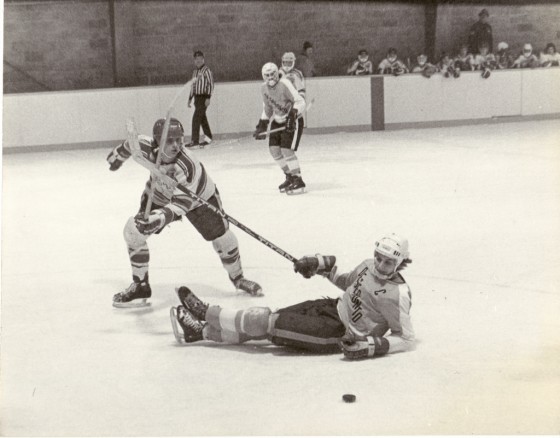24th May. '13
 I just watched a hockey game where Mother Russia was decisively defeated by the USA: 8-3. How is it possible that a team comprising of world-famous players, who rake in millions of dollars playing in the NHL, got their asses handed to them this bad? All these stars seemed incapable of playing together!I don’t know much about ice hockey, but I’ve given a lot of thought to building offensive lines in a business context. So let’s set hockey aside for the time being and start thinking about how to make better services and products, and how to generate some serious growth.
I just watched a hockey game where Mother Russia was decisively defeated by the USA: 8-3. How is it possible that a team comprising of world-famous players, who rake in millions of dollars playing in the NHL, got their asses handed to them this bad? All these stars seemed incapable of playing together!I don’t know much about ice hockey, but I’ve given a lot of thought to building offensive lines in a business context. So let’s set hockey aside for the time being and start thinking about how to make better services and products, and how to generate some serious growth.
Saying that good results are produces by team playing is a bit lazy. It’s not enough to stick a bunch of people by a lake to grill sausages and take a sauna together and expect them to perform better over the following quarter. Parties and get-togethers are important, socially. We all live and die in the hurly burly of the open plan office and business processes, and as a result we often never really get to know our colleagues – even the ones working on the same floor. The whole world is amazed by the ability of Silicon Valley to generate, develop and monetize innovation. They are often talked about it as the personal miracle of a Jobs or a Zuckerberg, but in most cases the miracle is not the invention itself, but in the years and years of systematic work done to implement it – the teams are the miracle.
Companies in the Silicon Valley are incredibly multicultural, even though there are some real American pickup drivers in the mix, too. The fact that they are a distinct minority in most companies came as a surprise to me. Often the heart of the development team consists of the Chinese, Indians, Russians, Danes and the odd Finnish engineer. A group like this is a hotbed for miscommunication, since not everyone eats sausage or likes saunas. The thing is, a team like this can look at a world from a much broader perspective than a group of childhood friends from the old neighborhood, who all stayed there and still meet at the same pub after work.
The primary challenge for Finnish business leadership and managers is not only in finding the right players for the right positions – our teams are, at present, far too Finnish. This will change, unavoidably. We, as managers and leaders, have improved our social skills, too. Changes will be accelerated by the ongoing market transformation as well as the fact that a new generation is coming up.
Many managers will lose sleep tonight over questions like “Can I really put such a young line on the ice?”; “Is it better to get my ass kicked when using a traditional sausage-eating and Finnish-speaking team?”; “If I take a chance and use a different line, will I still be the coach tomorrow?”
Bravely playing different lines and the resulting creative game play have won many ice hockey world championships. The same applies to new products and growth spurts in business. For this reason you never see headlines talking about major corporations as creators of something new. They can buy up companies and increase their market share, but they are generally incapable of creating anything new and courageous. The motion-killing inertia oozes out of the upper floors and the managers tend to prefer noble failures over bold victories. This does not please the individual virtuosos.
When the game is played hewing closely to tradition, no development takes place. This results in impoverished teams and companies. There are big markets and many moneymaking opportunities out there. Owners and managers come out once a year and exhort the players to attack, only to find out that they’ve neglected to scout and coach the next generation of star players.
So there you are. You used to have five lines to throw out into the international fray and now you have none. Then you panic. The solution is to buy a foreign or domestic star or two. Then you sit back and wait for a miracle. This is how many corporate acquisitions have been made. Unfortunately, what follows is: 1) the opponent is waiting in the center of the rink 2) owners are watching the game in the stands with their betting slips in hand 3) your players, unaccustomed to playing together, start getting in each others’ way as soon as the whistle blows.
My taste in music is very, very broad. I recommend a song called Mikä on kun ei taidot riitä by Renaissance man and pitiless observer of life in Finland, Martti Servo and Napander. The title translates loosely as “sometimes you’re just not good enough to cut it”. Have a great summer.
The original copy of this article was published in Tietoviikko Magazine.
The English version of the article is published in NOFEAR-COMMUNITY with
full permissions
Comments:
